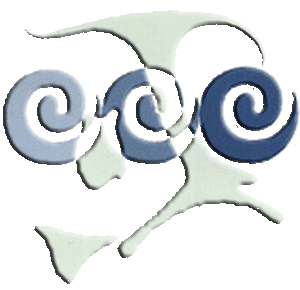
The Euro-Mediterranean Foundation for Dialogue among Cultures:
A project that concerns us all
Bearing in mind the significance that the project “Euro-Mediterranean Foundation for Dialogue among cultures and civilisations” has for the Euro-Mediterranean partnership, civil society actors who are involved in the partnership and who are working towards the development of a “Non-Governmental Platform for re-launching the Euromed Civil Forum” have closely followed this initiative and wanted to take a position. Over the summer, they drew up a document for reflection with proposals based on the experience that the organizations in this platform have had in their respective areas (human rights, culture and education, environment, sustainable development, trade unions).
The following recommendations are the platform’s contribution to the debate within the Euromed networks for Naples Civil Forum, Forum civil, with the view to making a joint declaration.
On the 2nd of December 2003 in Naples, the Ministers of Foreign Affairs from the Euro-Mediterranean partnership countries will decide on the framework and principles for the functioning of the “Euro-Mediterranean Foundation for Dialogue between Cultures and Civilisations”. This is an important event. It is not only the first Euro-Mediterranean Partnership institution to be established, as a contribution to the political re-launching of the Barcelona Process, but also, due to its theme, it will carry great weight given the current context of tension in the region.
The Euro-Mediterranean Foundation is therefore likely to create a great expectation within the societies of the countries concerned as a platform for consultation, coordination and development aid for projects. At the same time, this institution emerges in a context of a quasi-paralysis of cultural cooperation programmes (particularly in the performing arts, social sciences, books and translation) and in a time of increasing mistrust between the shores (i.e. visas denied once and again to cultural actors, a reduction in exchanges, etc.)
However, in order for the Foundation to successfully address its major stakes, is seems indispensable for the project to be rooted in the following premises:
· the actors in civil society must be involved on all levels, especially in the Consultative Committeewith a specific attention to equal participation of men and women. The diversity of their fields of action, their in-depth knowledge of the realities, and their intercultural competences will guarantee the pertinence of the Foundation.
· The centrality of human rights, as indivisible rights, as well as economic, social and cultural rights, must nourish on an ongoing basis the dialogue between cultures and the educational initiatives stemming from the Foundation;
· The contemporary dimension of cultural practices must guide the priorities of the Foundation, the work of which has to be anchored in the present and geared towards the future, rather than towards a conception of culture merely based on heritage.
In order to be credible, the Foundation’s work must be set on the basis of the following:
· Cultures are both diverse and complex. Just as in each of our societies, In the Euro-Mediterranean area as well as in each of our societies, cultures are intertwined.
· There should be no attempt made to establish hierarchies between cultures in the name of the values they bear.
In order to be useful in both the short and the long term, the Foundation must make a noteworthy contribution to:
· reducing the inequalities in cultural exchanges (access to knowledge, sources of information and information networks, means of production, etc.);
· strengthening the independence of cultural actors vis a vis economic, political and religious powers;
· supporting through its programmes the major role of contemporary artistic creation and thought in the dialogue between cultures;
· focusing on human exchanges which necessarily depend on the mobility of persons;
· focusing on the exchange of ideas beyond limited circles, which necessarily requires the free circulation of intellectual and artistic works;
· focus on the potential for cooperation between cultural operators through educational and training activities dealing with the dialogue of cultures.
In order to be legitimate in everyone’s eyes, the Foundation must be based on an international legal statute ensuring its independence. It must also receive significant and sustainable funding meeting the ambitions that Europe and the partner States intend to confer to this institution.
Although it will initially be set under the authority of the representatives of the States (Euromed Committee), the Foundation must rapidly bolster its legitimacy by functioning in an open, transparent manner, independently of the States.
Furthermore, the procedures presiding the establishment of the Foundation (identification of “network heads”, members of the Consultative Committee, etc.) as well as the rules of functioning and decision-making which will ensue must be both visible and comprehensible. This is why the Foundation should not be linked to another already existing institution.
Because the Foundation is already conceived as a “network of networks”, the institutions appointed by governments as “network heads” should have specific requirements set so that they visibly consult and associate with other experienced public and non-governmental operators both in the domain of the Euro-Med Partnership and that of dialogue of cultures in order to reflect the plurality and vitality of cultural expressions in civil society.
November, 10th 2003